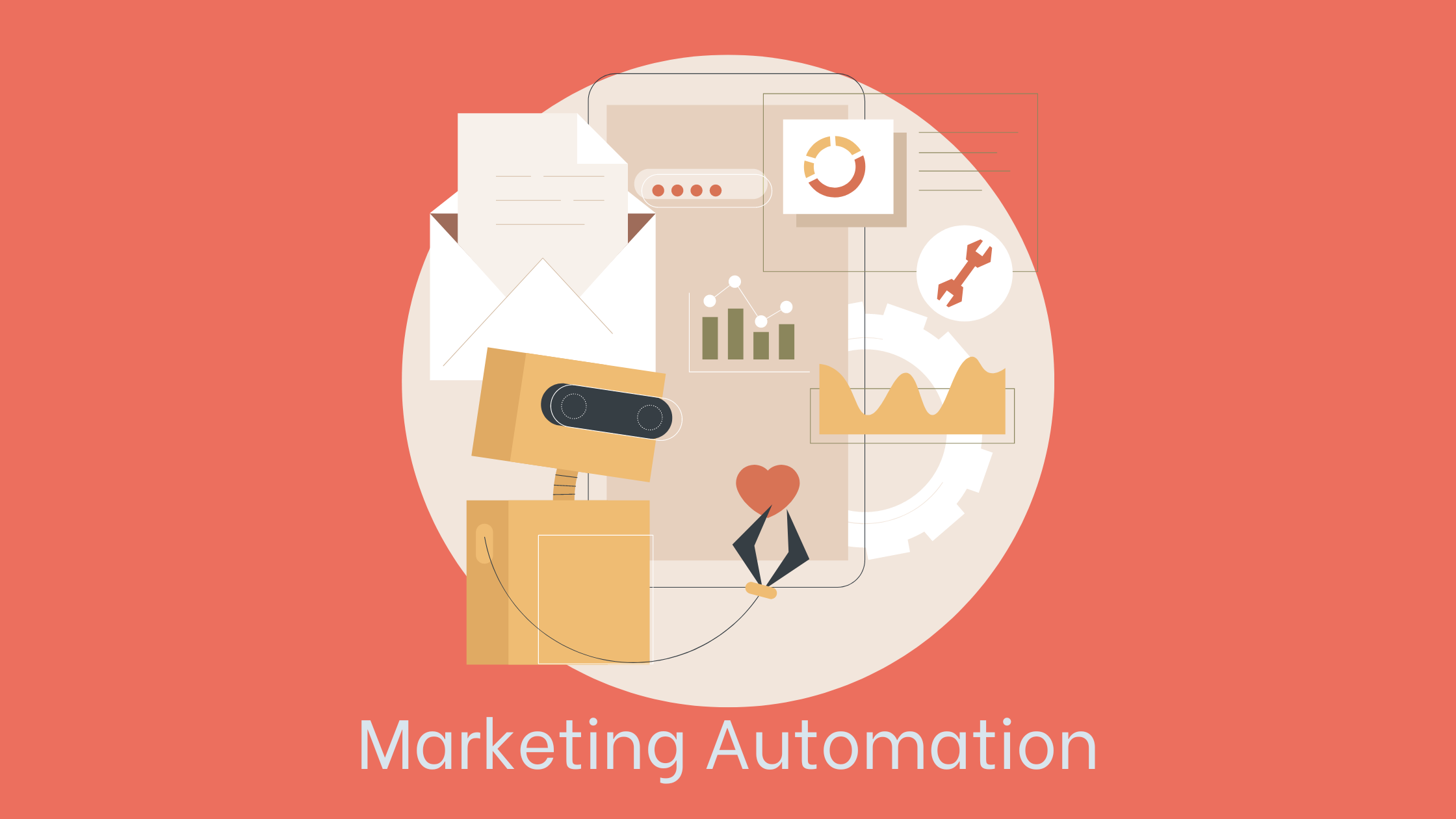So, you were successful in drawing traffic to your website plus converting some of them into paying clients. Well done! But how do you currently maintain the growth of your company? Marketing is like the backbone of your company, it helps you stand among the competition, likewise, marketing automation eases out your marketing campaigns and marketing agendas.This type of automation is an effective strategy.
Because several marketing tasks are now automated, you can be sure that your clients are getting the attention they need. They will receive a customized experience from you, and your company will earn profit as well.
The quick answer is yes if you’re considering whether you should automate your marketing. Let’s go into more detail about why you need marketing automation, before you spend time selecting the best automation platform and developing your workflows.
What is Marketing Automation?
You can use this automation to automatically manage your marketing operations and campaigns across several channels. Email, the web, social media, and text messaging can all be used as marketing tools.
On a practical level, you are automating and improving marketing processes that are frequently repetitious. For repetitive processes like sending personalized emails, scheduling social media posts, auto-response, customer segmentation, targeted advertising, and so forth, you may automate, optimize, and measure results.
Businesses use automation to reach a broad client base via several channels. Hundreds of your clients, for instance, may receive emails based on their website usage. To accomplish this, all you need to do is create automation processes, schedules, categories, etc. on your automation platform.
Workflows can be changed mid-campaign, outlined by templates, or created from scratch to produce better outcomes. A unified automation software for marketing has all of these features.
Importance:
After using marketing automation, 82% of marketers reported seeing a favorable return on investment (ROI) and greater productivity. Do you need a strategy when automation is supposed to run your marketing activities automatically? Most people believe that once marketing automation is implemented, they will no longer require a strategy. However, if you don’t establish a successful strategy, marketing automation won’t “automatically” provide you with the best outcomes.
The development of best practices comes from years of experience with a specific product, service, or procedure. Over the years, renowned marketing gurus who have used automation for marketing have provided many useful hints.
1. Establish goals:
Setting goals is the first step in any marketing effort. You must establish precise objectives if you want to gauge how marketing automation has enhanced your campaign.
It’s important to know how many of your quality leads converted. Additionally, you should be interested in learning when the changeover occurred and whether automation had a role.
2. Customize your leads:
Lead management entails lead qualifying, nurturing, and scoring. Lead scoring enables you to determine which leads are suitable for conversion and which ones should be categorized under “lead nurturing” (i.e., to further nurture them).
3. Segment:
The information you obtain from developing buyer personas can be used to categorize your audience and plan workflows. You can divide your audience into groups according to their demographics, interests, or location.
4. Establish buyer personas:
You can create buyer personas using information about your target market’s geography, demographics, interests, careers, backgrounds, etc. to better understand their problems and market to them.
5. Measure your effectiveness by:
See why it’s important to set goals right away. Here is where you compare your results to your objectives. How many good leads did you receive? The number of conversions? What is the ROI?
6. Adapt your content to you:
Similar to how you can segment your audience, you can create content and marketing materials that are specific to each section’s demands. Your marketing becomes considerably more relevant and targeted as a result. Your marketing and communication materials must also be engaging in addition to being relevant.
Need for Marketing Automation:
Marketing automation may help businesses everywhere increase their customer acquisition and retention rates, regardless of their size. In fact, within the first year of implementation, around 75% of businesses that invest in automation experience a return on their investment.
If done manually, lead development is a time-consuming operation. Fortunately, automation for marketing helps automate this procedure, allowing your marketing teams to maintain their strategic alignment while your sales teams concentrate on closing deals.
Your marketing staff can save at least six hours a week by using automated social media posts and advertisements. In addition, if you want to automate your outreach and follow-up emails, your response rate will increase by 250%.
The ability to obtain more data to enhance your procedures is yet another motive to invest in marketing automation. In the digital age, information is a very valuable resource, and automation may give you access to client information to help you grow your company.
Marketing automation can guide potential customers towards a favorable decision with each step done regarding personalized information. Since 77% of customers require specific and customized content for each stage of their journey, personalized content has become essential. You can create a personalized journey with marketing automation that can take into account the individual needs of each buyer.
Your brand can become more consistent with the aid of marketing automation. With automation, you can always deliver the experience that your audience expects from you, meeting their expectations every time.
Benefits of Marketing Automation:
1. Boost the conversion rate:
In addition to boosting conversion rates, marketing automation can boost the productivity of your staff. You can improve your conversion rate and handle your leads more effectively with the help of automation tools.
Your marketing automation software will monitor your prospects and even allow you to retarget website visitors who don’t convert, improving your conversion rate optimization (CRO). Furthermore, automation for marketing needs to allow your team more time to evaluate your marketing plan and think about how to convert visitors.
2. Marketing and sales balance:
You can connect corporate goals and efforts by combining your sales and marketing automation initiatives using the same platform. In simple terms, it will streamline the transition from marketing-qualified leads to sales qualified leads.
On the contrary, marketing automation may boost sales productivity by 14.5% and cut marketing overhead by 12.2%. Additionally, it can help in boosting sales and lead generation. While your sales staff works harder, your marketing team will spend more time planning how to boost conversion rates.
3. Strategy for personalized marketing:
Through its segmentation features and reporting, marketing automation software will enable your team to develop more personalized content as they spend more time creating rather than manually entering data. Targeting your persona across many channels is possible with marketing automation. You can use search ads, email marketing, or social media to target them.
How is this made possible via marketing automation? Marketing automation, on the other hand, converts your website visitors into leads, and once you know who your leads are, you may categorize them based on their behavior or other traits.
4. Performance:
Your entire department becomes more effective thanks to marketing automation. While giving your team more time to work on essential, strategic projects, you may be able to save staffing expenditures. Marketing automation software can automate the routine of posting to social media every day rather than doing it manually.
This frees up your staff to focus on more imaginative tasks like campaign and project planning and brainstorming. Additionally, using an automation platform will simplify tasks for your team. Your team can use the same software to post a blog, a landing page, an email nurturing campaign, or a social media update. In the end, this saves your campaign-creating team time.
5. Lead evaluation:
Your team can set up lead scoring using marketing automation software, and this will alert your sales team when a lead transitions from a marketing qualified lead to a sales qualified lead.
This demonstrates once more how well your marketing and sales teams are aligned. Additionally, the procedure is automated, making it simpler and real-time. As a result, there is no time lost, and your sales team may contact potential customers promptly.
6. Scalable techniques:
When establishing your marketing systems and procedures, keep scalability in mind. Can your business expand together with this process? If it is not scalable, it will be challenging for your business to grow.
Using marketing automation, you can design scalable processes. The more manual a process is and the more it relies on a single individual, the harder it’ll be to scale when the team grows.
7. Lead Nurturing:
Lead nurturing is made possible by marketing automation. Using marketing automation software, you may design drip email campaigns and monitor their effectiveness. Without lead nurturing, it will be more difficult to turn leads into sales prospects.
8. Managing data:
Without saying it again, marketing automation tools will track your leads and their interaction with your website. As a result, data management is now simpler than ever. In addition, it automatically updates your data.
9. Accurate reporting:
Using marketing automation solutions, reporting your data doesn’t have to be a difficult task. Your program needs to enable you to create automated reports. A difficult task becomes much easier. Platforms for marketing automation can also provide you with a high-level breakdown of your whole workflow.
You’ll be able to identify challenges and sticking areas as a result. You can spot where issues are occurring with accurate, efficient reporting.
During your lead nurturing email efforts, do leads lapse? Or is it when you are making sales? In either case, precise analytics will enable you to identify such issues and promptly address them.
WRAPPING IT UP:
You can begin to consider the many processes inside your marketing campaigns that you can automate now that you have a firm idea of what marketing automation is. It’s a good idea to prioritize each marketing automation project by ranking them from highest to lowest impact (in terms of time/cost savings).
For instance, what does your team normally work on? Is the procedure automatable? How much could you possibly save in terms of time and resources? Consider marketing automation as a technology that can be used to build the context at scale, saving time and actually improving the customer experience.






